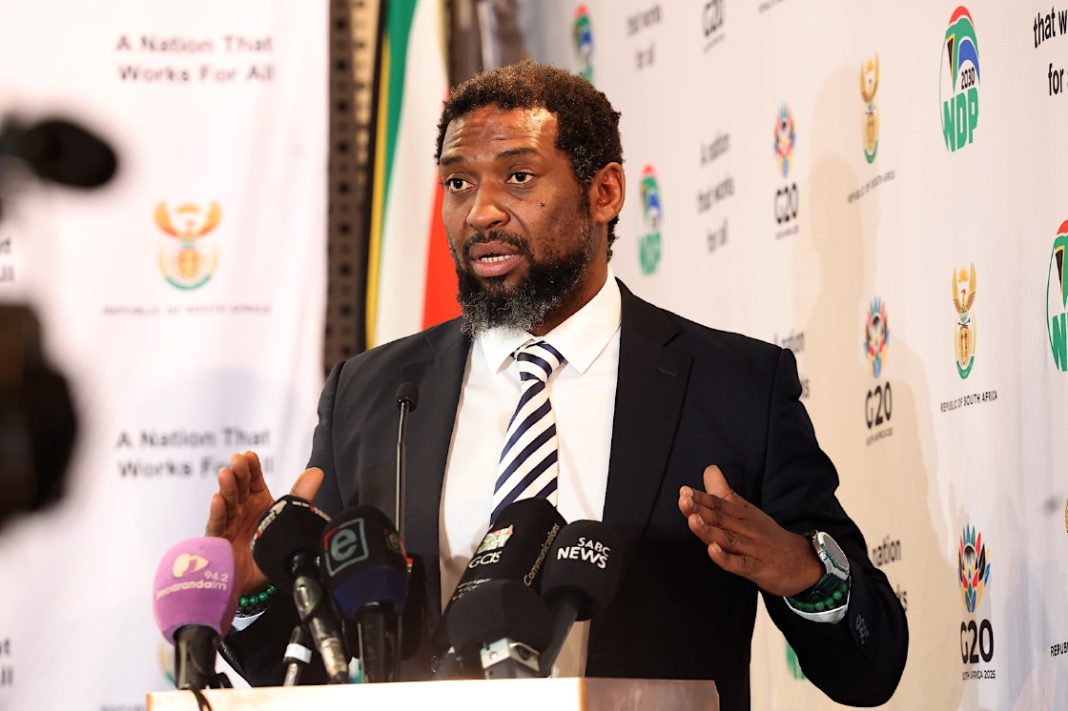Buti Manamela
The G20 Leaders’ Summit concluded this weekend with the usual choreography of diplomacy, but behind the photo-ops and the carefully weighted communiqués lies a deeper shift that deserves attention, especially from those of us on the African continent.
For once, education did not appear as a footnote to economic policy; it emerged as a structural pillar of global development. With the adoption of the Leaders’ Declaration, the G20 has signalled that the future of higher education in Africa is no longer a regional concern. It is a global priority.
This new posture is long overdue. Africa’s population is young, dynamic and growing, and by 2050 one in every four young people entering the world’s labour markets will be African.
Whether viewed through the lens of economics, geopolitics or human development, this demographic shift represents the single most consequential trend of the 21st century. The G20 finally acknowledges this as an opportunity that depends entirely on the decisions we make in education today.
The Declaration recognises what African policymakers and students have known for decades: that access to higher education remains deeply unequal and, without intervention, will widen the chasm between those who benefit from the knowledge economy and those who remain trapped outside it.
The reality is stark. Africa south of the Sahara still has the lowest tertiary enrolment levels in the world. Rural communities remain underserved, digital access is uneven, and too many young people enter the labour market without the skills demanded by a fast-changing world. The G20 has now placed these issues on the global agenda with unprecedented clarity.
What stands out in this year’s commitments is the centrality of digital transformation. The world has moved beyond seeing online learning as a temporary solution introduced during COVID-19. It is now recognised as a structural enabler of mass inclusion.
Digital platforms open the doors to students who live far from campuses or who balance work and study. They lower costs, enable new forms of personalised learning and allow institutions to expand without relying solely on physical infrastructure. For a continent like Africa, where the demand for higher education far outstrips the ability to build campuses, the commitment to digital ecosystems is not an innovation—it is a lifeline.
Equally significant is the emphasis on educational mobility. The commitment to improve the recognition and portability of qualifications, to expand micro-credential frameworks and to enable learners and workers to move more freely across borders is transformative.
For countries like South Africa, and for millions of African students, mobility is the difference between being confined to local opportunities and being part of a genuinely global workforce. The Leaders’ Declaration positions mobility as a strategic necessity for a world seeking resilience, innovation and talent.
These global commitments align closely with what we have been pursuing through South Africa’s G20 Presidency. Our focus on solidarity, equality and sustainability has shaped the education agenda from early childhood development to higher learning, from digital governance to skills recognition, and from teacher professionalisation to international partnerships.
At home, we are modernising curricula, expanding occupational qualifications, strengthening NSFAS, transforming the TVET system, and building international partnerships that connect our institutions to global knowledge networks. The G20’s commitments validate this direction and create a platform for accelerating our reforms.
Perhaps the most important shift reflected in the Declaration is the recognition that higher education is fundamental to economic transformation. It is no longer acceptable to imagine universities and colleges as institutions that merely produce graduates.
They must become engines of innovation, hubs of research and experimentation, and catalysts for entrepreneurship. They must develop the scientific, digital, cognitive and creative capabilities that African economies will depend on in the decades ahead. They must prepare not only job seekers, but job creators.
There is, of course, a gap between commitments and implementation. Declarations do not change systems; governments do. The test for the global community and for African governments in particular, will be whether these commitments find expression in budgets, partnerships, and sustained reforms.
For South Africa, this means deepening digital infrastructure, strengthening cross-border recognition mechanisms, expanding access to blended learning, transforming the TVET sector, and continuing the difficult work of ensuring that NSFAS serves the students who need it most.
Yet despite these challenges, this G20 Summit marks a quiet turning point. For the first time, the world’s most influential economies have acknowledged that Africa’s education challenges and opportunities are global determinants of growth.
They have recognised that access is not a matter of charity but of shared prosperity. They have implicitly accepted that the future of global labour, innovation and stability will be shaped in classrooms, lecture halls, training workshops and digital platforms across our continent.
The task now is to turn the Declaration into action. If we do so with urgency and ambition, the G20 Summit of 2025 will be remembered as the moment when the world finally understood that Africa’s young people are not a problem to be solved, but a potential to be unlocked, and that higher education is the key that opens that door.
Buti Manamela is the Minister of Higher Education and Training
INSIDE EDUCATION







